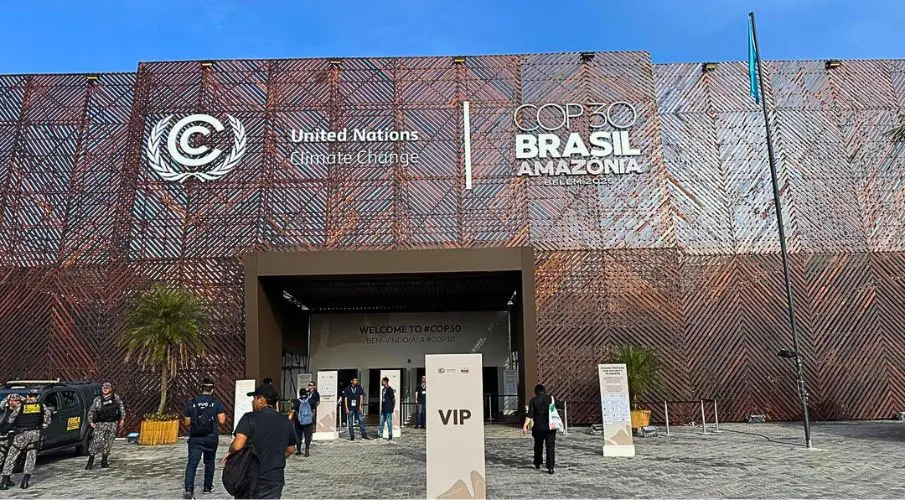The world has taken another step toward dangerous warming - but not in the fight against it. In Belém, in the heart of the Amazon, this year’s UN climate conference ended with a result that left many delegations stunned. The countries agreed to provide more money to those nations already suffering massively from storms, floods, and droughts. But the central issue that should have been at the forefront - the phaseout of fossil fuels - is entirely absent from the final document. No clear wording, no binding plan, not even the word itself was mentioned.
Brazil had presented several text proposals toward the end, which were intended to at least create a framework for the future. But when the nearly final version was on the table, it became clear how far apart the interests of the states are. The cause of the crisis was omitted, as if there were fear of naming it. The hosts promised to work with Colombia later on a separate paper outlining the path away from coal, oil, and gas. But that document will not carry the same weight as an official COP30 decision - it will be a recommendation, not a binding guide. The path to this conclusion was arduous. Delegates spent more than twelve hours in late-night negotiations in the office of conference president André Corrêa do Lago before a compromise was finally reached. He called the result a beginning. The difficult talks, he said, would continue under Brazil’s leadership, even if they were not reflected in this text. An outlook that sounds more like a call to endure than like progress.
The reactions were not long in coming. Many spoke of a low point, a document without strength and without courage. Former Philippine negotiator Jasper Inventor, now with Greenpeace, called the result “weak”. Panama went even further. Its representative, Juan Carlos Monterrey Gomez, said that a decision that cannot even say “fossil fuels” is not neutrality but “complicity”. He accused the conference of deleting science from the text “because it offends the polluters”. In doing so, he captured something that many in Belém felt: the world is moving at a pace that has nothing to do with the reality of the climate crisis. The countries that have contributed the least to emissions are receiving more support - but still no answers to when and how the major emitters will finally reduce their output. The gap between expectations and results has rarely been as visible as in these days in the Amazon region.
Now a document remains that promises some relief to those affected but provides no clear path for the world. The discussion that should have taken place was postponed. The decision that should have been made did not happen. And once again, a year is lost in which the planet grew warmer and millions of people became more vulnerable.
The conference is over. The crisis is not.
Investigative journalism requires courage, conviction – and your support.
If you appreciate our work – make it possible for us to keep writing.
Kaizen is not financed through advertising, not through companies, not through a subscription, not through political parties. Every article is created through our own research – often against resistance, independent, critical and accessible to everyone. Always with full commitment. Because truth cannot be sold. But it needs allies.
If you consider our investigations important: Support us. Even a small contribution helps us continue every day.
Thank you for making independent journalism possible.
Updates – Kaizen News Brief
All current curated daily updates can be found in the Kaizen News Brief.
To the Kaizen News Brief In English
So lange Lobbyisten, Milliardäre, machthungrige Diktatoren an der Macht sind, hat Klima nur dann einen Stellenwert, wenn es den großen Gewinn bringt.
Keiner arabischen Staaten oder Rissland drehen sich selber den Geldhahn zu.
Trump lebt nach drill baby drill.
Und auch indien ist wenig interessiert etwas zu ändern.
China baut zwar auch auf erneuerbare Energien, aber nutzt immer noch reichlich fossil Energie.
Bevor sich da nichts ändert, wird sich für das Weltklima leider auch bichts zum Positiven ändern.
leider hast du da vollkommen recht, und es ist schon schockierend, wie sich viele verhalten und es einfach um profit geht … preis dafür, egal